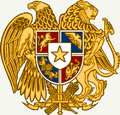Feivienas
The Feivienas (Otherworldly Folk, plural) are a collection of intrinsically magical abhuman species common to the Royal Union of Kouralia. As a guideline, all species under this banner follow the same rules:
- sapience,
- predominantly humanoid physiology (with a high probability of successful interbreeding),
- longevity compared to humankind, and
- being of and from magic, and displaying increased affinity for it.
Despite being separate species, it has been documented that reproduction is almost always successful following inter-species sex involving Fei and Humans or amongst different species of fei. This produces off-spring known as demi-fei who will regularly experience greater affinity with conscious magicusage, greater longevity, and often residual influence of that species of fei's inherent magical qualities. The degree to which this is experienced will often depend on the degree of separation from the original fei's influence on the human's bloodline. Research has been done as to why the degree to which one is 'demi-fei' does not conform to or reflect current understanding of genetics, but is inconclusive. As with the prevalence and probability of magic affinity within humans, the magical element makes it difficult for conventional science to pin down.
Furthermore, while placed under the umbrella term 'Feivien' many of these sub-species have their own formal names along with colloquial names derived from the term 'Fei.' For example, Kouralian werewolves are correctly termed Lvpan Selenes (the Moon's Wolves), however they can be identified as 'Fei-hounds', though many would find the term offensive. Throughout Kouralian history other terms have existed for these types, including 'elves', 'others' and 'otherkin', and 'the folk.' In the present day though, these terms have fallen by the way-side. Furthermore, while 'elf' can be used to describe Feivienas in some minor dialects of High Kouralian, it only refers to the Quendi of Menelmacar in mainstream usage.
Feivienas Superior and Inferior
Demi-fei
The Demi-Fei are, in general, those who are neither fully human nor fully Fei owing to interbreeding between compatible beings; in particular it refers to the offspring of one such union who are precisely half of each. It is impossible to classify to what degree particular characteristics of the anteceding Fei will present in the Demi-Fei. They can manifest in the form of longevity, heightened senses, enhanced thaumical potential, more minor changes such as lung capacity or, it is even theorised, in behavioural characteristics such as inspiring an otherwise inexplicable love of the sea.
Undead and unliving
While not actually fei, usually for failing the humanoid physiology and requirement for breeding capability, the resurrected deceased are usually included under the umbrella term in Kouralia. However, the term 'undead' is misleading, as in Kouralia it strictly-speaking only applies to the lowest orders of the resurrected rather than to all those which are resurrected. The correct terms in Kouralia are 'undead' for those incapable of sapience, 'unliving' for the higher orders, and 'Epihaudean' (Epihaudas plural) or 'resurrected' to refer to the general concept of the deceased returning from the grave. These epihaudas tend not to fit into the definition of Feivienas because they are, functionally, corpses. An Allanean Dark Knight is commonly a skilled soldier in the service of the arch-mage Empress of the Free Kingdom, and would belong to one of the higher orders of the epihaudas, therefore being 'unliving.' They retain all the independence of thought, ability to learn and understand, and personhood of their mind from before death. They also experience increased longevity and an increased affinity for magical energies, and through their unnatural creation are clearly of and from magic. However, as corpses they are physically incapable of copulation. They are not a distinct species, and are better described as a state of being for a human or other species. Therefore they cannot 'truly' be described as fei in the same manner as a werewolf or [REPLACE]Vampire[REPLACE] can be.
The above example of an Allanean Dark Knight is evidently 'unliving' as it retains its intellect and capacity for thought. Other unliving include liches, common foreign vampires, and revenants. Most undead may be sentient, but are usually near-mindless, and do not fulfill the requirements for personhood in the Royal Union. Thus, undead are even further removed from the definition of fei than unliving. While the laws around epihaudas are ill-defined and primarily drawn from case law, one can commit homicide against the unliving but not the undead. Most resurrected in Kouralia are corporeal, though there are some which are incorporeal or selectively corporeal and being so does not inherently affect one's status as undead or unliving.
Common forms of epihaudas in Kouralia include:
- Zombies, which are taken to be corporeal resurrected corpses of the deceased, animated through magic and universally undead.
- Ghosts, which are incorporeal spirits of the deceased, and can be either undead or unliving.
- Liches, which are higher forms of resurrected corpses. They are unliving, and are usually the essence of a person bound to an artifact which allows them to transcend the death of their mortal form.
- Demons, which are tortured spirits of the deceased bound to an object pre-mortem. They are barely undead, and are more a reflexive magical expression unleashed by some interaction between the living and their object.
Social issues
Feivienas beyond Kouralia
